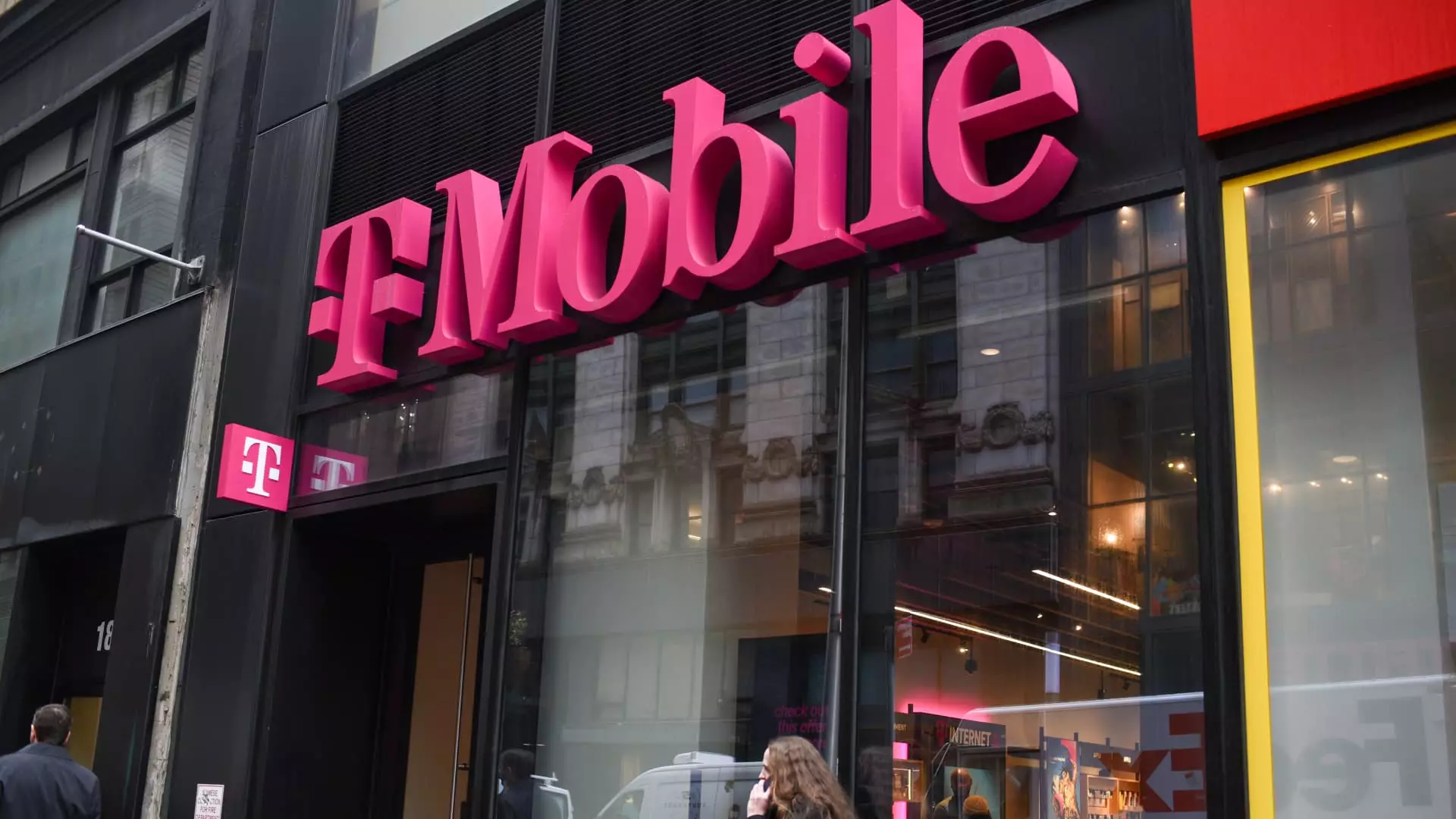When T-Mobile’s stock plummeted by 11%, it sent shockwaves through the investment community. Analysts were left scratching their heads as the company reported postpaid phone additions totaling 495,000, falling short of the 504,000 that industry experts widely predicted. This unexpected decline raises serious questions about the company’s growth trajectory. How is it possible that a powerhouse like T-Mobile could falter in such a crucial moment? It’s a portrait of a company grappling with rising competition, inflation, and an increasingly unstable economic environment, where consumer spending is tightening as corporate confidence wavers. The backlash isn’t just hitting the balance sheets; it serves as a wake-up call to executives: adapt or risk falling behind.
Alphabet: The Unlikely Bright Spot
In stark contrast, Alphabet, Google’s parent company, recently reported financials that exceeded expectations. A 2% stock increase following earnings per share of $2.81—well above the predicted $2.01—marks a refreshing exception to the rule. With revenue hitting $90.23 billion, it’s clear that Alphabet’s unwavering focus on innovation and diversification has borne fruit. Amidst economic uncertainty, it thrives, a digital behemoth continually adapting to market needs while many others scramble for stability. Very few companies showcase the ability to redefine their core strategies in real-time like Alphabet. However, the question remains: can this upward trajectory last, or is it a mere flash in the pan?
Skechers and the Dangers of Overstating Optimism
While critics often scrutinize successful brands for lack of humility, Skechers is now being judged for the opposite. After the footwear maker announced a 4.8% stock drop due to weaker-than-expected revenue, the company withdrew its 2025 guidance, citing “macroeconomic uncertainty stemming from global trade policies.” This retreat into caution prompts investors to consider the validity of the previously rosy outlook. Are we witnessing a case of overzealous optimism backfiring? Skechers’ scenario underscores a broader trend in the market: companies must tread carefully on the public’s outlook, as unforeseen global conditions can quickly unravel even the most robust forecasts.
Gilead Sciences: The Biopharma Balancing Act
Though Gilead Sciences showed earnings per share at $1.81, beating Wall Street’s $1.79 estimate, the stock still suffered a 2.5% decline due to first-quarter revenue that fell short of projections. In the biopharmaceutical sector, such performance tends to cast a pall on investor confidence. When you’re in a field applauded for its rapid advancements, the implications of even the slightest revenue miss can be detrimental. Gilead’s turmoil is emblematic of a sector that, while innovative, is also fraught with unpredictability. This case serves as a reminder that within the healthcare industry, managing expectations is especially significant.
Saia: A Rapid Decline
A staggering 31% drop in Saia’s stock is practically unprecedented. The shipping company reported lackluster earnings of $1.86 per share in a market where expectations were high, and investors were sufficiently disappointed. The downgrade by BMO Capital Markets highlights intensified scrutiny around the narrative that performance issues might be “company specific.” The dramatic fall is concerning not only for Saia but for investors who might have considered the shipping sector a reliable venture. It reflects the dangerous volatility that lurks behind seemingly steady market sectors, particularly as global trade patterns shift.
Intel: The Chipmaker’s New Dilemmas
Intel’s 7% stock decline is disheartening for those who have long considered it a stalwart of the tech industry. The company is now expected to only break even in the next quarter, which raises red flags for investors. The landscape of semiconductor manufacturing is being reshaped by new players and innovations, and Intel’s stagnant revenue estimates for the upcoming quarter of $11.8 billion serve as a cautionary tale. Companies in this space can no longer afford to rest on their laurels; they must innovate continually or risk irrelevance. The dramatic shifts of the market in recent months serve as a harsh reminder: in technology, complacency is the enemy.
Tesla: The Rollercoaster of Market Sentiment
Tesla showcased a surprising resilience with a phenomenal 10% stock surge. With shares soaring more than 17% this week, investors are likely feeling cautiously optimistic that the electric vehicle giant is shaking off the malaise affecting many in the automotive sector. Tesla’s willingness to disrupt traditional business models gives them an edge, but the temptation to grow rapidly must be balanced against sustainability measures. The uncertainty around the electric vehicle market reminds investors of the potential volatility, and while Tesla remains a strong player, it is not immune to the risks ahead.

